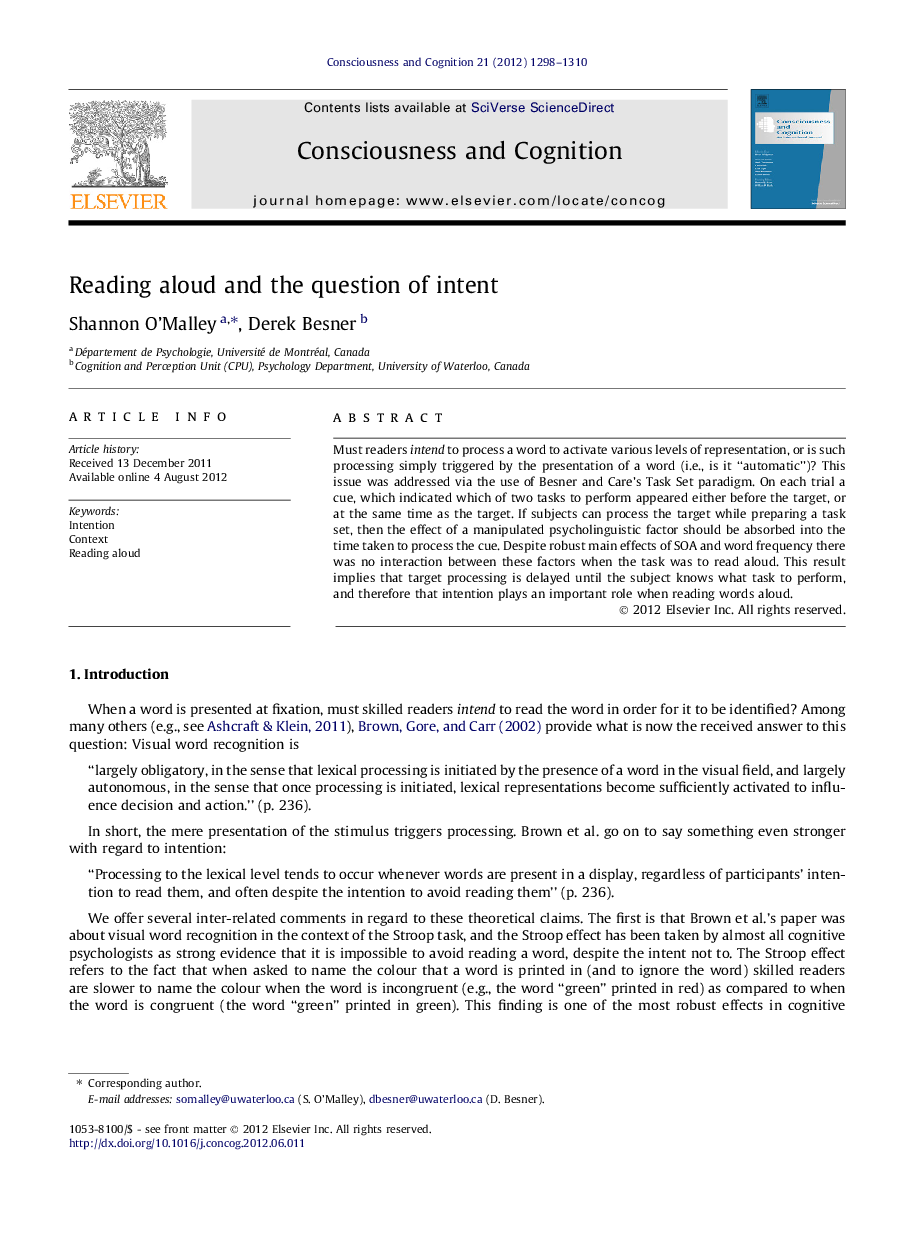| Article ID | Journal | Published Year | Pages | File Type |
|---|---|---|---|---|
| 927619 | Consciousness and Cognition | 2012 | 13 Pages |
Must readers intend to process a word to activate various levels of representation, or is such processing simply triggered by the presentation of a word (i.e., is it “automatic”)? This issue was addressed via the use of Besner and Care’s Task Set paradigm. On each trial a cue, which indicated which of two tasks to perform appeared either before the target, or at the same time as the target. If subjects can process the target while preparing a task set, then the effect of a manipulated psycholinguistic factor should be absorbed into the time taken to process the cue. Despite robust main effects of SOA and word frequency there was no interaction between these factors when the task was to read aloud. This result implies that target processing is delayed until the subject knows what task to perform, and therefore that intention plays an important role when reading words aloud.
► Participants were cued with a tone on each trial to indicate what task to perform. ► Word frequency, nonword complexity, and SOA between cue and target, were manipulated. ► Both word frequency and nonword complexity were additive with SOA. ► In this context, cue processing does not unfold in parallel with lexical processing. ► The inference is that the translation of print to sound can be affected by intention.
